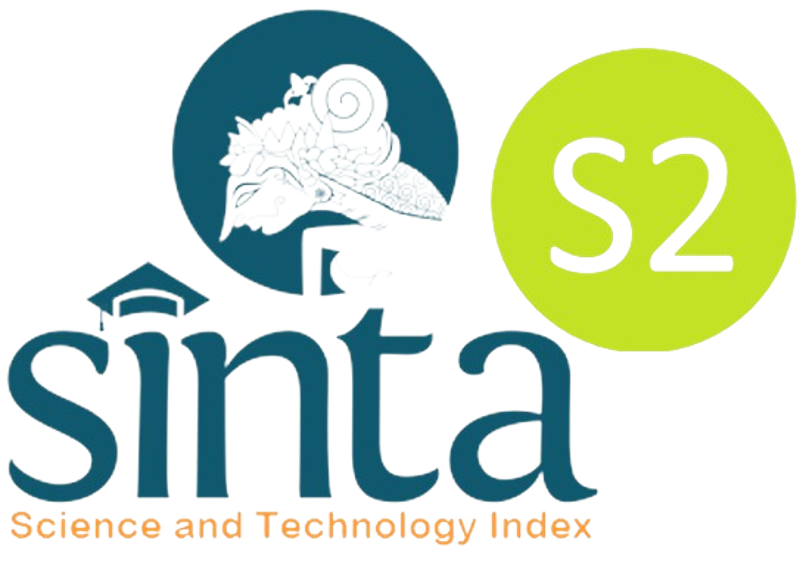Using Problem-Based Learning to Promote Students Critical Thinking and Mathematical Problem-Solving Skills
Abstract
Abstract: Using Problem-Based Learning to Promote Students Critical Thinking and Mathmatical Problem Solving Skills. Objectives: This study aims to promote students ability to think critically and solve mathematical problems in terms of the level of mathematical curiosity using Problem-Based Learning model. Methods: The method of research is quasi-experimental with the mixed method with a sequential explanatory strategy. Findings: There were differences in the students critical thinking and mathematical problem solving skills taught by problem-based learning and conventional learning, but no difference based on the level of mathematical curiosity. Conclusion: Problem-based learning is recommended as an alternative solution for learning in the classroom in an effort to improve critical thinking skills and solve mathematical problems.
Keywords: problem-based learning, critical thinking skills, mathematical problem solving skills, mixed method research.
Abstrak: Menggunakan Problem-Based Learning untuk Meningkatkan Keterampilan Berpikir Kritis dan Pemecahan Masalah Matematis Siswa. Tujuan: Penelitian ini bertujuan mengetahui kemampuan berpikir kritis dan pemecahan masalah matematis ditinjau dari level mathematical curiosity mahasiswa dengan menerapkan model Problem-Based Learning. Metode: Metode penelitian adalah kuasi eksperimen dengan metode campuran dengan strategi eksplanatoris sekuensial. Temuan: Terdapat perbedaan kemampuan berpikir kritis dan pemecahan masalah matematis mahasiswa yang diajarkan dengan problem-based learning dan pembelajaran konvensional, namun tidak terdapat perbedaan berdasarkan level curiosity matematis. Kesimpulan: Problem-based learning direkomendasikan menjadi solusi alternatif pembelajaran didalam kelas dalam upaya meningkatkan keterampilan berpikir kritis dan penyelesaian masalah matematis.
Kata kunci: problem-based learning, keterampilan berpikir kritis, keterampilan pemecahan masalah matematis, penelitian mixed method.
Full Text:
PDFReferences
Ali, R., Hukamdad, D., Akhter, A., & Khan, A. (2010). Effect of Using Problem Solving Method in Teaching Mathematics on the Achievement of Mathematics Students. Asian Social Science, 6(2), 67–72. https://doi.org/10.5539/ass.v6n2p67
Cáceres, M., Nussbaum, M., & Ortiz, J. (2020). Integrating critical thinking into the classroom: A teacher’s perspective. Thinking Skills and Creativity, 37, 100674. https://doi.org/https://doi.org/10.1016/j.tsc.2020.100674
Cahyono, B. (2015). Korelasi Pemecahan Masalah dan Indikator Berfikir Kritis. Jurnal Pendidikan MIPA, 5(1), 15–24.
Chukwuyenum, A. N. (2013). Impact of Critical thinking on Performance in Mathematics among Senior Secondary School Students in Lagos State. IOSR Journal of Research & Method in Education (IOSR-JRME), 3(5), 18–25.
Creswell, J. W. (2014). Research design.qualitative, quantitative and mixed method approaches. California: Forth Edition.
Fasha, A., Johar, R., & Ikhsan, M. (2018). Peningkatkan Kemampuan Pemecahan Masalah dan Berpikir Kritis Matematis Siswa melalui Pendekatan Metakognitif. Jurnal Didaktik Matematika, 4185(1980), 53–64. https://doi.org/10.24815/jdm.v5.i2.11995
Fauzi, A. R., Zainuddin, Z., & Atok, R. Al. (2017). Penguatan Karakter Rasa Ingin Tahu dan Peduli Sosial melalui Discovery Learning. Jurnal Teori Dan Praksis Pembelajaran IPS, 2(2), 79–88. https://doi.org/10.17977/um022v2i22017p079
Firdaus, I. K., & Md. Nor Bin Bakar, B. (2015). Developing Critical Thinking Skills of Students in Mathematics Learning. 9, 226–236.
Ikman, Hasnawati, & Rezky, M. F. (2016). Effect Of Problem Based Learning ( PBL ) Models Of Critical. 4(7), 361–374.
Iqoh, U., Rinaldi, A., & Putra, R. W. Y. (2021). Model Pembelajaran WEE Ditinjau dari Curiosity: Pengaruhnya terhadap Kemampuan Pemahaman Konsep Matematis. JKPM (Jurnal Kajian Pendidikan Matematika), 6(2), 267. https://doi.org/10.30998/jkpm.v6i2.9970
Jl, K., & Parman, M. S. (2013). Mathematical communication skills of junior secondary school students in coastal area. Jurnal Teknologi (Sciences and Engineering), 63(2), 77–83. https://doi.org/10.11113/jt.v63.2014
Kadek, N., Dwi, A., Murda, I. N., Ayu, I. G., & Agustiana, T. (2020). Korelasi Antara Rasa Ingin Tahu dan Motivasi Belajar dengan Hasil Belajar IPA Siswa Kelas V. 25(1), 20–31.
Kharisma, J. Y., & Asman, A. (2018). Berorientasi pada Kemampuan Pemecahan Masalah Matematis dan Prestasi Belajar Matematika The Development of Problem-Based Mathematics Instructional Materials Oriented to Students ’ Mathematics Problem Solving Skill and Students ’. 1(1), 34–47.
Masek, A., & Yamin, S. (2011). The Effect of Problem Based Learning on Critical Thingking Ability: A Theoretical and Empirical Review. Journal of International Review of Social Sciences and Humanities, 2(1), 215–221. Retrieved from https://www.academia.edu/29769961/The_Effect_of_Problem_Based_Learning_on_Critical_Thinking_Ability_A_Theoretical_and_Empirical_Review
Pratiwi, I. (2019). Efek Program Pisa Terhadap Kurikulum di Indonesia. Jurnal Pendidikan dan Kebudayaan, 4, 51–71.
Setyosari, P. (2010). Metode Penelitian Pendidikan dan Pengembangan. Jakarta: Prenada Media Group.
Simalango, M. M., & Aisyah, N. (2018). Kesulitan Siswa Dalam Menyelesaikan Soal-Soal Pisa Pada Konten Change and Relationship Level 4 , 5 , dan 6 di SMP N 1 Indralaya. Journal Pendidikan Matematika,12(1), 43–58.
Sugiyono. (2013). Metode Penelitian Kuantitatif, Kualitatif, dan R&D. Bandung: Alfabeta.
Zetriuslita, & Ariawan, R. (2021a). Curiosity Matematis Mahasiswa dalam Pembelajaran Daring Ditinjau Berdasarkan Level Kemampuan Akademik dan Gender. Jurnal Cendekia: Jurnal Pendidikan Matematika, 05(0), 3253–3264.
Zetriuslita, Ariawan, R., & Nufus, H. (2016). Analisis Kemampuan Berpikir kritis Matematis Mahasiswa dalam menyelesaikan soal uraian Kalkulus Integral Berdasarkan Level Akademik Mahasiswa. Infinity Journal, 5(1), 56–65. Retrieved from http://www.e-journal.stkipsiliwangi.ac.id/index.php/infinity/article/view/193
Zetriuslita, Wahyudin, & Dahlan. (2018). Association among mathematical critical thinking skill , communication , and curiosity attitude as the impact of problem-based learning and cognitive conflict strategy ( PBLCCS ) in number theory course. 7(1), 15–24. https://doi.org/10.22460/infinity.v7i1.p15-24
Zetriuslita, Wahyudin, & Dahlan, J. A. (2017). Mathematical Critical Thinking and Curiosity Attitude in Problem Based Learning and Cognitive Conflict Strategy: A Study in Number Theory course. International Education Studies; Vol. 10, No. 7; 2017, 10(07), 65–78. https://doi.org/10.5539/ies.v10n7p65
Zetriuslita, Z., & Ariawan, R. (2021b). Students’mathematical Thinking Skill Viewed From Curiosity Through Problem-Based Learning Model On Integral Calculus. Infinity Journal, 10(1), 31–40.
Refbacks
- There are currently no refbacks.
Copyright (c) 2023 Jurnal Pendidikan Progresif

This work is licensed under a Creative Commons Attribution-ShareAlike 4.0 International License.
View My Stats

The copyright is reserved to The Jurnal Pendidikan Progresif that is licensed under a Creative Commons Attribution-ShareAlike 4.0 International License.






